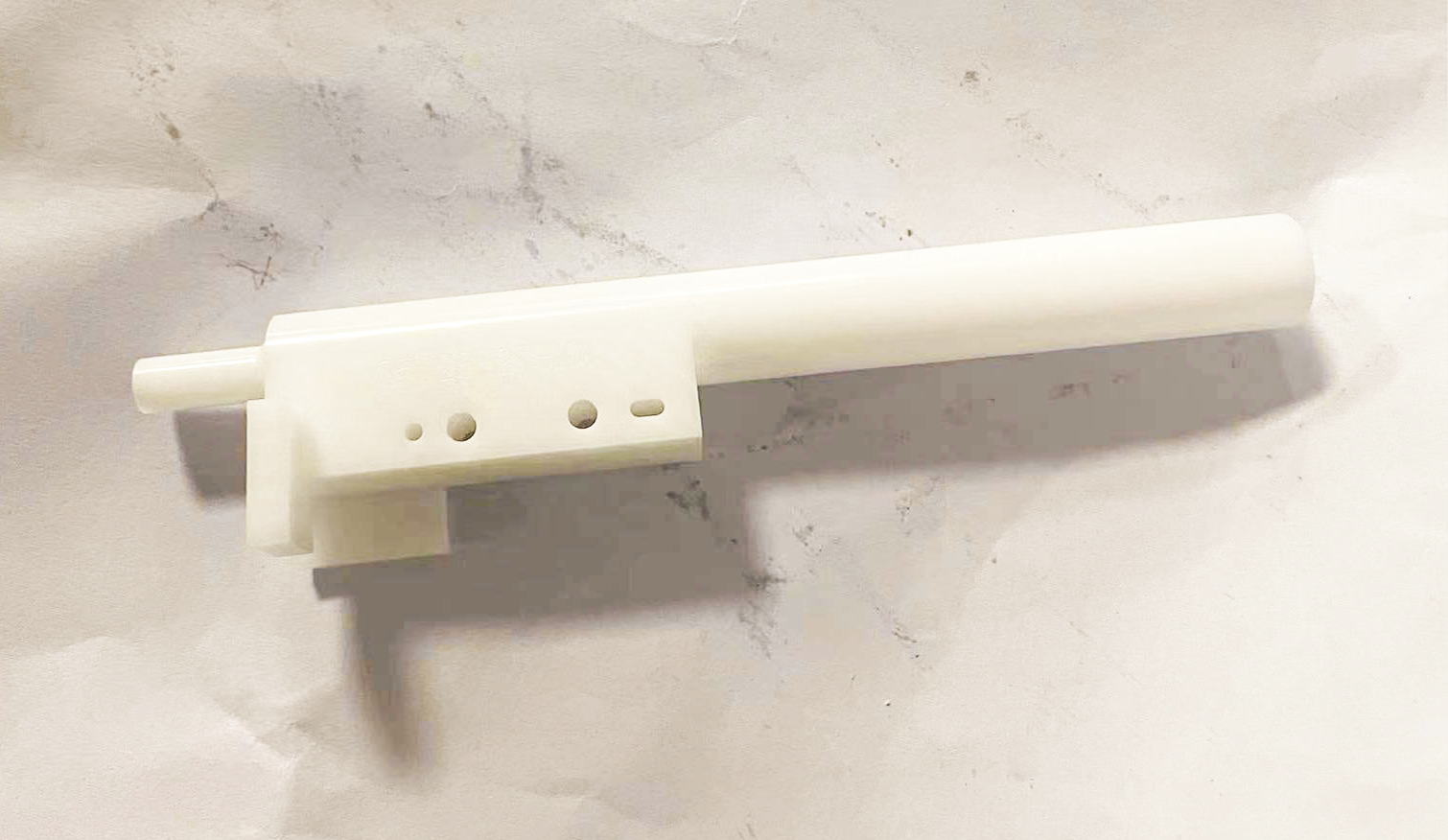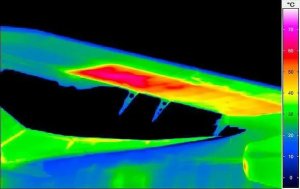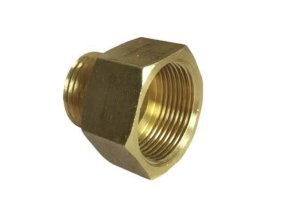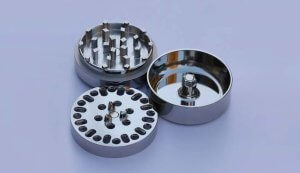Delrin, a trademarked name for polyoxymethylene (POM), is an engineering thermoplastic known for its high strength, rigidity, and resistance to friction and wear. This semi-crystalline plastic boasts exceptional dimensional stability and ease of machining, making it a favored material in precision parts manufacturing. In the realm of CNC machining—a computer-controlled subtractive process used to create detailed and complex parts—Delrin stands out as an excellent candidate due to these attributes. It can be precisely shaped into intricate components that are integral for various industries, including automotive, consumer electronics, and medical devices. The combination of Delrin’s material properties and the versatility of CNC machining ensures a seamless transition from design to functional component with consistent quality and efficiency.
Advantages of Using Delrin in CNC Machining
Delrin, a popular acetal homopolymer thermoplastic, offers several benefits when utilized in CNC machining operations. One notable advantage is its natural lubricity, which reduces friction during the machining process, leading to less wear on cutting tools and potentially extending their service life. This characteristic helps maintain high precision and consistency when crafting parts. Furthermore, Delrin exhibits excellent dimensional stability; that is, it resists deforming under physical or thermal stress, ensuring that machined components meet tight tolerance specifications and retain their intended shape over time. These properties make Delrin ideal for manufacturing gears, bearings, or any component where precise fit and movement are critical. Additionally, thanks to its superior strength-to-weight ratio, Delrin-delivered parts exhibit robust performance without adding unnecessary mass, an attribute especially advantageous in automotive or aerospace applications where weight savings contribute to overall efficiency.
Comparing Delrin with Other Thermoplastics in the Machining Process
In CNC machining, the use of Delrin offers distinct differences when compared to similar thermoplastics such as nylon or PTFE. Delrin is known for its high tensile strength, stiffness, and dimensional stability, which allows it to be machined at higher speeds and with greater precision than nylon, that often experiences more material flex during processing. Unlike PTFE, which has a slippery surface that can be challenging to grip and may require special tooling, Delrin’s mechanical properties enable efficient cutting motions, reducing wear on tools and achieving cleaner finishes. The efficiency gains from working with Delrin not only speed up production cycles but also extend the lifespan of machinery, providing an overall cost-effective solution in operations where precision and durability are key.
Common Applications for CNC-Machined Delrin Parts
In the realm of CNC machining, Delrin is a popular material choice due to its high strength and rigidity alongside desirable friction properties. This thermoplastic is frequently utilized in the fabrication of precision gears that require robust mechanical toughness and minimal wear over long operational durations, evidencing its impact within various industries. Additionally, the electrical insulating properties of Delrin make it an ideal candidate for creating critical electrical components where non-conductivity is essential. An example of Delrin’s successful industrial application can be seen in automotive manufacturing processes, where it has been expertly employed as bushings and bearings. These components benefit from Delrin’s low moisture absorption and excellent dimensional stability, providing reliable performance under fluctuating environmental conditions.
Key Considerations When Machining Delrin
Machining Delrin, a popular acetal homopolymer known for its high strength and rigidity, demands meticulous attention to temperature control and proper tooling. Due to its susceptibility to heat build-up, careful monitoring of cutting temperatures is essential to maintain the integrity of the machined part. Overheating can lead to melting or distortion, compromising Delrin’s desirable properties. Consequently, selecting tools with optimal geometry and applying coolants when necessary can prevent excessive friction-generated heat. Moreover, adjustments in feed rate are critical; it should be tailored to minimize thermal stress while ensuring efficient material removal. Within these parameters, CNC machining can leverage Delrin’s full potential for precise, durable components.
Pre-machining and Post-machining Treatments for Delrin
To ensure the highest quality in Delrin CNC machining, implementing specific pre-machining and post-machining treatments is crucial. For optimal cutting conditions, pre-machining treatment of Delrin might include annealing to relieve internal material stress, which can otherwise lead to dimensional inaccuracies during the cutting phase. This provides a more stable material state that allows precise machining without unintended deformation. On the other hand, post-machining treatments focus on achieving desired surface finishes or tight tolerances through processes such as vibratory tumbling for smoothness or applying special coatings to enhance wear resistance. Each step, from preparing the raw Delrin workpiece to refining its surfaces after CNC operations, plays a vital role in delivering parts that meet exacting specifications.
Innovations and Technological Advancements in CNC Machining of Delrin
The evolution of CNC technology has significantly improved the machining process for materials like Delrin, a thermoplastic known for its rigidity, resilience, and machinability. Innovations such as high-precision tooling and computer-aided manufacturing software contribute to the enhancement of quality and reduce waste during production. State-of-the-art CNC machines are now capable of executing complex designs with minimal tolerances, ensuring that each Delrin component is produced with remarkable accuracy and consistency. Sustainable practices have also been integrated into the workflow, focusing on optimizing material usage and incorporating recycling protocols to minimize environmental impact. The precision-oriented nature of advanced machinery coupled with deliberate resource management embodies the modern approach towards responsible yet efficient Delrin CNC machining.
Conclusion
The unique characteristics of Delrin, such as its high strength, rigidity, and low friction, make it exceptionally well-suited for CNC machining applications. Its ease of machinability allows for precise components with excellent dimensional stability, suitable for a variety of demanding industrial contexts. Looking to the future, advancements in polymer technology and CNC capabilities may further expand Delrin’s applications, potentially leading to innovations in fields like automotive design, electrical engineering, and robotics where lightweight, durable parts are crucial.
Other Articles You Might Enjoy
- Impeller five-axis CNC precision machining technology
The impeller is the most important part on the rotor, and is generally composed of a wheel disc, a wheel cover and a blade. An integral impeller is an impeller…
- Exploration of Flange CNC Machining Technology
Flanges, as crucial mechanical connection components, are widely used in various pipelines, containers, valves, and other equipment, ensuring stable connections and reliable sealing. In modern manufacturing, particularly in industries such…
- Prototype CNC Machining Services: Custom Solutions in Stainless Steel
Introduction to Prototype CNC Machining The use of CNC (Computer Numerical Control) machining in prototyping brings remarkable precision and consistency, combined with accelerated production times. By definition, CNC machining is…









